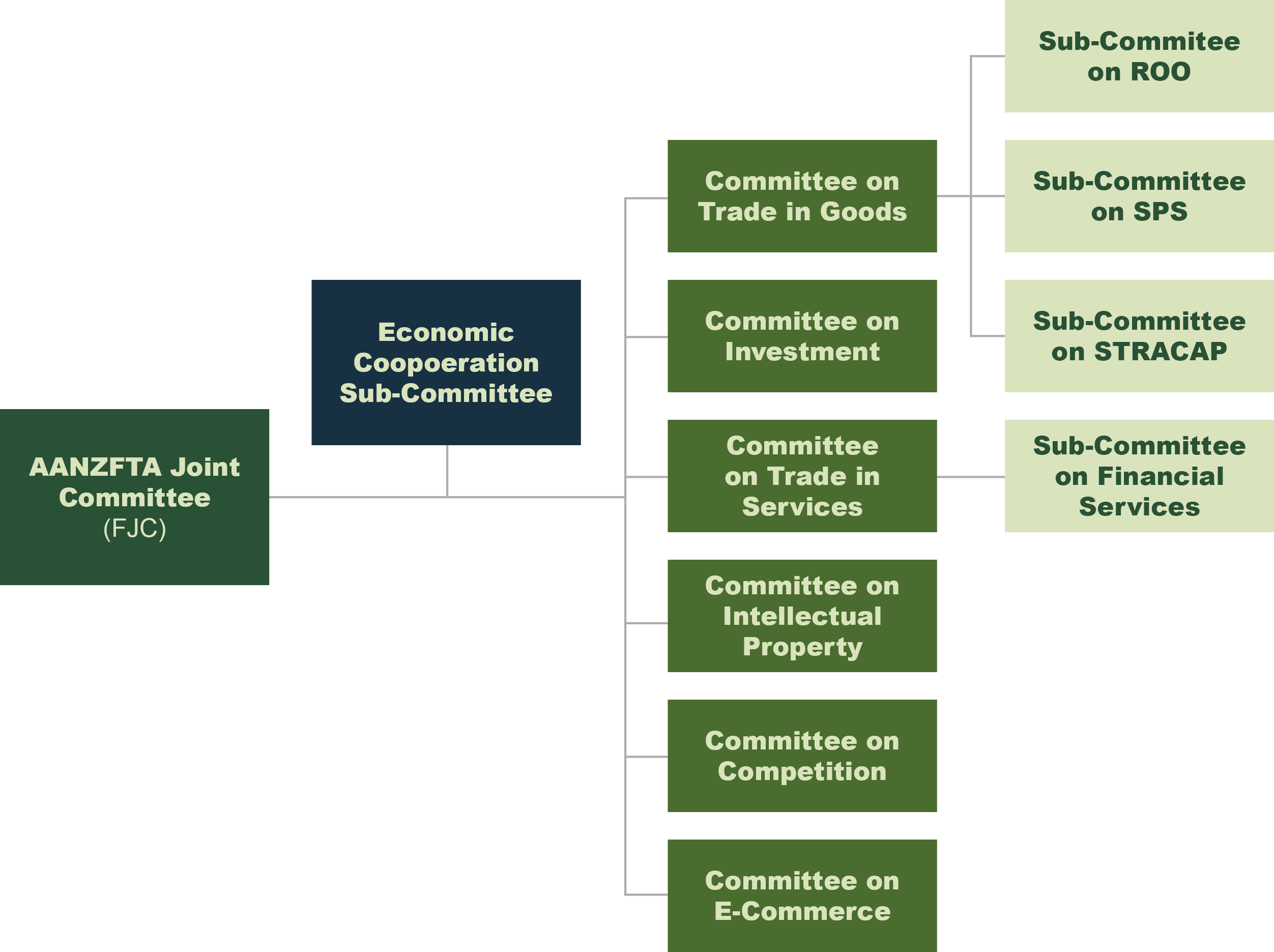AANZFTA Implementation Support Program (AISP)
The AANZFTA Implementation Support Program (AISP) builds on the success of the AANZFTA Economic Cooperation Support Program (2010-2021) and underpins the 'Economic Cooperation' chapter of the AANZFTA agreement.
The Regional Trade for Development (RT4D) Facility supports AANZFTA Parties implement this through the AISP, including through addressing the needs of the ASEAN Lesser Developed Countries.
Upgraded Agreement August 2023
The upgraded ANZFTA agreement highlights a commitment to strengthening economic ties and marks a new era of enhanced trade collaboration. Building on the original AANZFTA, the upgrade introduces new and improved chapters to:
- Modernise and simplify trade at and beyond borders
- Address and reduce emerging trade barriers
- Promote sustainable and inclusive economic development
These provisions expand existing chapters, enabling regional businesses to fully capitalise on the agreement.
Updated Chapters
The updated chapters cover:
- E-commerce
- Competition
- Services
- Investment
- Trade in Goods
- Customs Procedures
- Trade Facilitation
- Rules of Origin.
New Chapters
The upgrade also introduces new chapters addressing critical and emerging areas of trade, including:
- Trade and Sustainable Development,
- Micro, Small and Medium Enterprises (MSMEs), and
- Government Procurement.
How does the AISP work?
The AISP is designed to ensure that AANZFTA's governance bodies lead on strategic decisions and implementation.
Key stakeholders collaborate to implement the AISP. These include:
- The ASEAN Secretariat provides operational and administrative support to all Committees.
- Ten active AANZFTA Subsidiary Bodies (SBs), linked to key AANZFTA chapters, involved at every phase of the project life cycle, from planning to implementation and reporting.
- The Economic Cooperation Sub-Committee (EC-SC) is responsible for approving proposals and activities under the AANZFTA Implementation Support Program, as well as overseeing the implementation and administration of AANZFTA economic cooperation. It also provides advice and recommendations to the FTA Joint Committee (FJC).
- The AANZFTA Joint Committee (FJC) is composed of senior officials from AANZFTA Parties and has oversight over the work of Subsidiary Bodies and the EC-SC.

AISP Process
The AISP ensures that ASEAN's economic cooperation initiatives are strategically planned, well-governed, and inclusive. It especially supports the priorities of lesser-developed ASEAN economies, contributing to their economic growth and development.
1. Strategic Planning: AANZFTA Subsidiary Bodies and the AANZFTA FJC set strategic priorities for FTA implementation.
2. Work Planning: On an annual basis AANZFTA Subsidiary Bodies and the FJC propose priorities and approve projects that address their strategic priorities.
3. Project Design and Implementation: Approved projects undergo a robust design process that ensures these are implemented in line with the needs, priorities and requirements of AANZFTA Parties.
4. Reporting: RT4D provides AANZFTA Subsidiary Bodies with reports that outline the progress projects have made towards their intended outputs and outcomes.
5. Dedicated Support for Cambodia, Laos and Vietnam: RT4D includes dedicated Country Managers for Cambodia, Laos and Vietnam to help these countries strengthen their project proposals, ensuring they align with their specific needs and priorities.